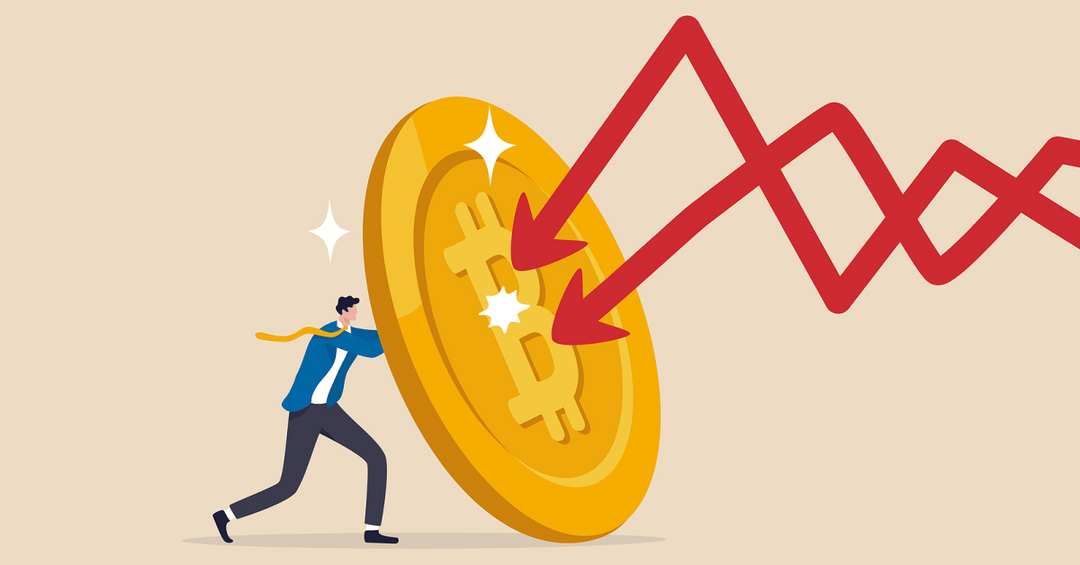Bitcoin which is often deemed as the savior during uncertain economic conditions is currently feeling the heat as the economy crumbles. As traditional markets struggle, the question arises: Has the role of Bitcoin as hedge asset in a global downturn started fading? This discussion came up in a recent roundtable moderated by Rob Nelson, in which two guests, David Gokhshtein and Jon Najarian, spoke about the opportunities of Bitcoin in the current environment of turmoil.
Bitcoin’s Prominence in Uncertain Times
Starting the discussion, Rob Nelson, one of the leaders of the financial media, spoke about it in terms of an alternative investment during crises. Traditionally, Bitcoin has been considered as an inflation hedge and, to certain extent, as a protection against market risks.
Nelson posed a critical question: The understanding of how a recession might affect the price change of a Bitcoin and whether the long-term advantages overpowers the short-term fluctuations is one question that seems to tickles the mind of many investors especially those who are running away from the volatile stock market.

David Gokhshtein, Founder and Executive Chairman of Gokhshtein Media supported Nelson’s view but he added that BTC should be always included in the Americans’/every portfolio. In spite of his rather negative attitude towards such companies as BlackRock and Fidelity, Gokhshtein admitted that they can perform a decisive function of gearing Bitcoin to traditional consumers. “However, even if the fundamental motivation at the base of Bitcoin is going to vanish,” Gokhshtein said, “these institutions alone could carry Bitcoin forward.”
Federal Reserve’s Role and Market Dynamics
Much of the conversation was focused on the main topic such as the Federal Reserve’s monetary policy and Bitcoin. At one point, Gokhshtein complained about the recent actions of the Federal Reserve, including the unwillingness to reduce interest rates for inflation. He claimed that it due to this hesitation that market dips have occurred almost all over, something that has been curtailing investors as well as consumers.
In his turn, Gokhshtein complained about the Fed’s policy and said that it predicted the market: The Fed is doing nothing to support the market. He went on to say that had the rate cuts been deeper, confidence in the market could have been created and some of the financial woes felt in different parts of the world eased.

It also continues to the effects that could be catalyzed by Bitcoin ETFs especially those to be sponsored by key institutions such as BlackRock. Nelson highlighted a common concern among Bitcoin enthusiasts: that it is a possibility for introducing Bitcoin ETFs to upset the market. He provide criticism of such an argument, pointing out that with the help of ETFs, more people would be allowed exposure to Bitcoin, thus being positive for the market.
Jon Najarian, the Co-Founder of Market Rebellion join the debate, dismissing any argument that can equate the ETF with being detrimental. To his credit, Najarian indicated that the lack of an approved Bitcoin ETF in the past had created an inefficiency caused by the collapse of entities like FTX. “Had there been a regulated Bitcoin ETF,” Najarian pointed out, they “may well have steered clear of some of the factors which led to the failure of FTX”. His claim that the approval of the Bitcoin ETFs provides a relatively safe and reliable investment tool to the investors has added a new perspective to the ongoing debate over the impact of digital currencies especially Bitcoins in a fluctuating market.
The Future of Bitcoin as a Hedge
During the course of the discussion it emerged that while Bitcoin is still an active participant in the financial markets, it’s function of acting as a hedge during recession is being reconsidered. Each of them showed certain perspectives into these processes: Gokhshtein, Najarian. Gokhshtein focused more on the ability of conventional banking organizations to support Bitcoin’s longevity, whereas Najarian earmarked compliance approaches recognized as Bitcoin ETFs for maintaining stability.
Of the experts questioned, there is a general consensus that has emerged that Bitcoin is not quite the hedge it used to be. The growing institutional interest in the digital asset space combined with regulatory shifts in different countries imply that Bitcoin will remain a barometer for economic downturn in the future markets.
Final Take: Bitcoin Hedge Status
While the global economy has remained volatile, questions about the ability of Bitcoin to maintain its position of an economic hedge continues to rage on. The opinion of Nelson, Gokhshtein, and Najarian presented the contribution to this task indicates that this is a rather complicated problem. Even though Bitcoin remains one of the most significant digital assets at the moment, more time will tell whether it will remain a good measure against any unfavorable shift in the global economy. Bitcoin’s story is still unwritten, and as it enters these volatile waters, the audience and the stakeholders shall have to keep their fingers on the pulse of what makes it tick. Keep following Deythere for latest updates on Bitcoin and its trends.










